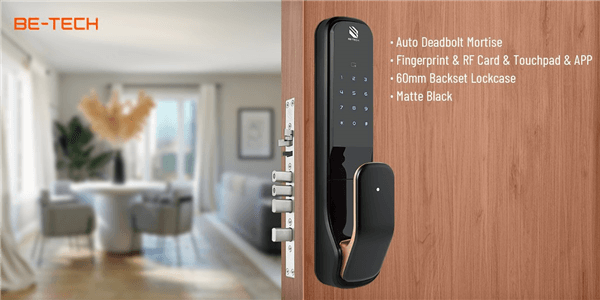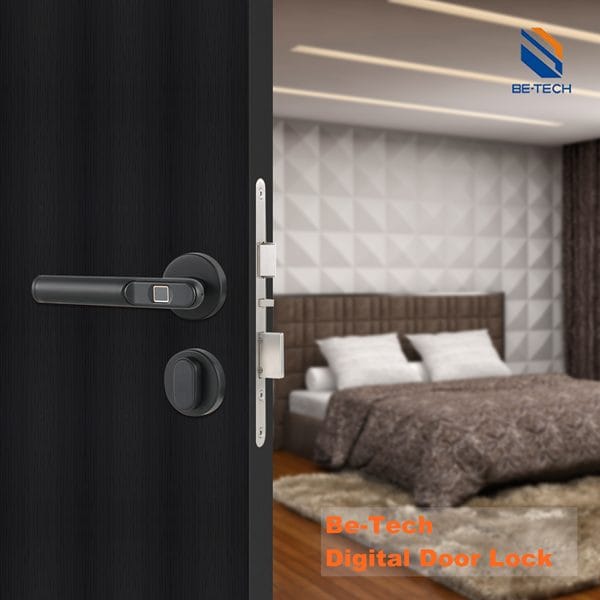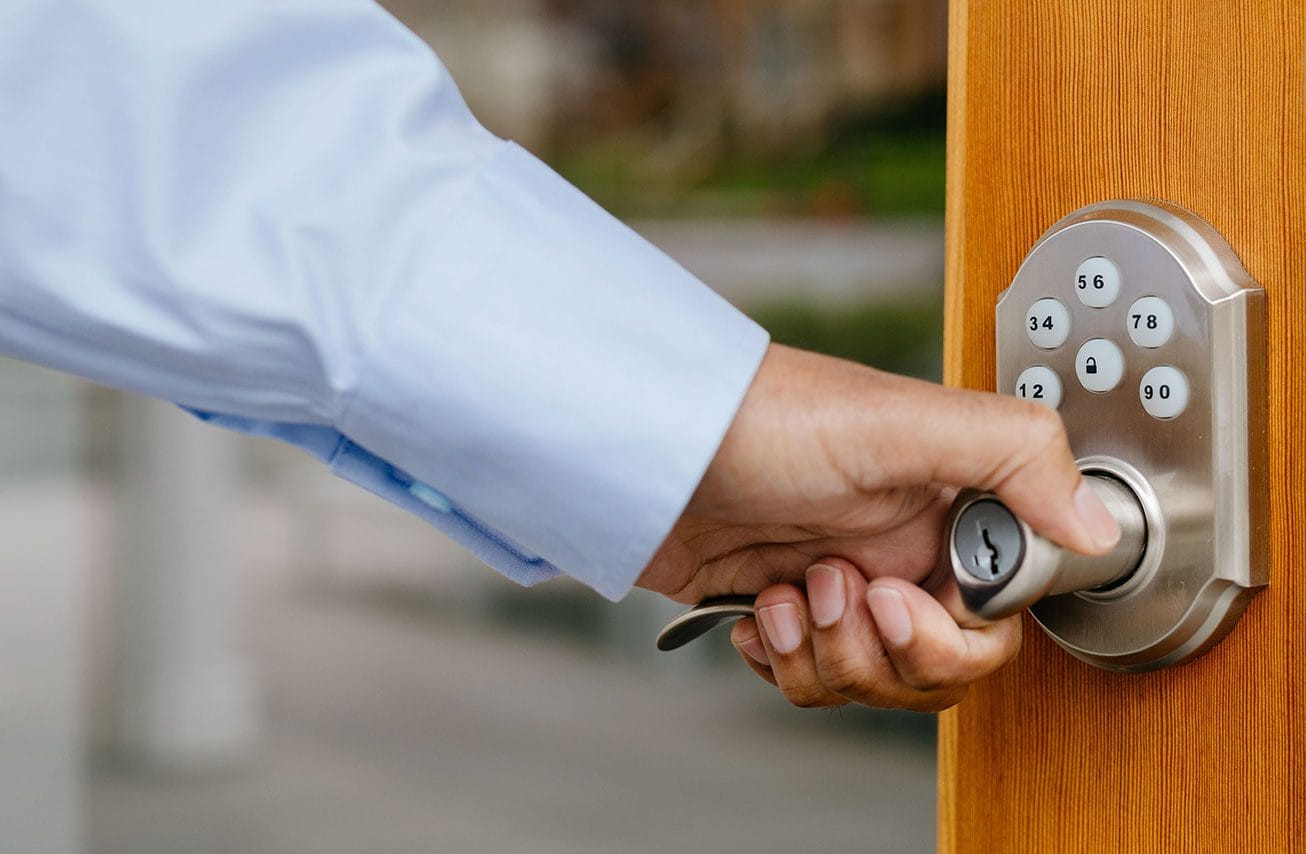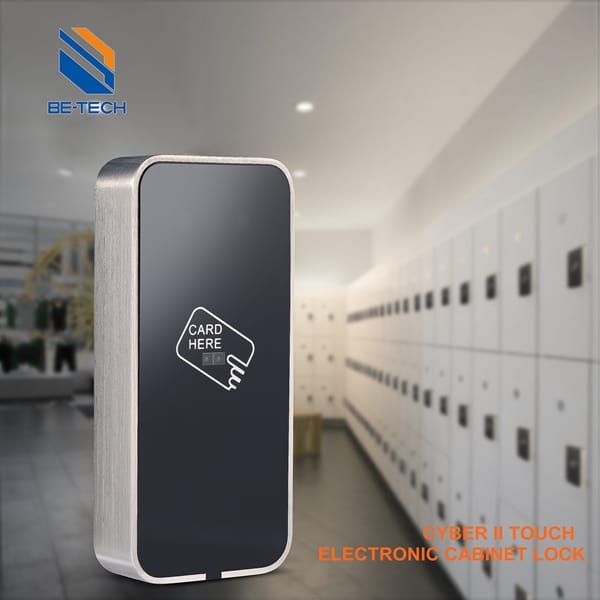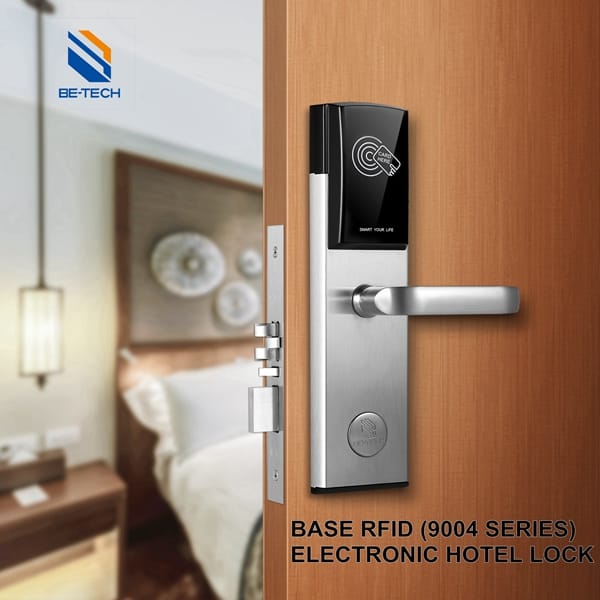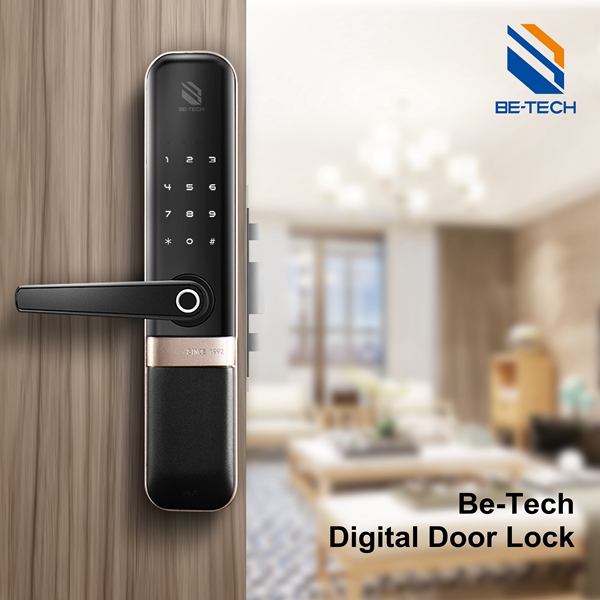Imagine a world where your fingerprint unlocks not just your smartphone but also your luxury hotel suite, granting you access to a personalized haven tailored to your every preference. This is the promise of biometric technology in the hospitality industry, where cutting-edge innovations are redefining the guest experience, particularly for VIP travelers seeking exclusivity and unparalleled service.
Biometric hotel locks, leveraging unique biological identifiers like fingerprints, facial features, or iris patterns, are rapidly gaining traction in the hospitality sector. By eliminating the need for traditional keys or keycards, these systems offer a seamless and secure way for guests to access their rooms and other hotel facilities.
But the benefits extend far beyond mere convenience. Biometric technology empowers hotels to create truly personalized experiences for their VIP guests, fostering loyalty and exceeding expectations in an increasingly competitive market.
This article explores the transformative potential of biometric hotel locks, examining how they elevate the VIP experience, enhance security, and streamline hotel operations. We’ll also address common concerns surrounding data privacy and explore the future of this technology in the evolving landscape of the hospitality industry.
Understanding Biometric Technology
Before we unlock the full potential of biometric hotel locks, let’s first understand the underlying technology that powers these systems. Biometrics, the science of measuring and analyzing unique biological characteristics, has been used for decades in various security applications. Its adoption in the hospitality industry, however, marks a significant shift towards a more personalized and tech-driven guest experience.
Types of Biometric Technology in Hotels
Hotels are increasingly embracing diverse biometric technologies to enhance their security and guest experience. Here are some of the most common types:
- Fingerprint Scanning: One of the most widely adopted methods, fingerprint scanning captures and analyzes the unique ridges and valleys on a guest’s fingertip.
- Facial Recognition: This technology analyzes facial features, such as the distance between eyes, nose shape, and jawline, to identify individuals.
- Iris Scanning: Iris scanning captures the intricate patterns in the colored part of the eye, offering a highly accurate and secure identification method. This information was not found in the sources.
- Voice Recognition: This technology analyzes the unique characteristics of a person’s voice, such as pitch, tone, and cadence, for identification. This information was not found in the sources.
- Palm Vein Scanning: This method captures the unique vein patterns in a person’s palm, offering a highly secure and less intrusive alternative to fingerprint scanning. This information was not found in the sources.
Benefits and Drawbacks of Biometric Hotel Locks
Like any technology, biometric hotel locks come with their own set of advantages and disadvantages. Hotels must carefully weigh these factors to determine if this solution aligns with their security needs, budget, and guest expectations.
| Benefits | Drawbacks |
|---|---|
| Enhanced Security | Potential for Spoofing Attacks |
| Improved Guest Convenience | Data Privacy Concerns |
| Streamlined Hotel Operations | System Malfunctions and Power Outages |
| Personalized Guest Experiences | Cost of Implementation |
| Enhanced Brand Image and Reputation | Limited Guest Familiarity with Biometric Technology |
Let’s break down these benefits and drawbacks in more detail:
Benefits:
- Enhanced Security: Biometric identifiers are unique to each individual, making them significantly more difficult to duplicate or forge than traditional keys or keycards.
- Improved Guest Convenience: Eliminating the need to carry physical keys or remember keycard numbers streamlines the check-in process and allows guests to access their rooms with ease.
- Streamlined Hotel Operations: Biometric locks integrate seamlessly with hotel management systems, automating tasks, and reducing administrative burdens on staff.
- Personalized Guest Experiences: By linking biometric data to guest profiles, hotels can customize room settings, provide personalized recommendations, and offer tailored services, creating a more memorable and exclusive stay.
- Enhanced Brand Image and Reputation: Investing in cutting-edge technology like biometric locks positions hotels as innovative and forward-thinking, attracting tech-savvy travelers and enhancing their brand reputation.
Drawbacks:
- Potential for Spoofing Attacks: While biometric systems are generally secure, sophisticated attackers may attempt to bypass them using fake fingerprints or facial images.
- Data Privacy Concerns: Guests may have concerns about the collection, storage, and potential misuse of their biometric data.
- System Malfunctions and Power Outages: Like any electronic system, biometric locks can malfunction or become inaccessible during power outages.
- Cost of Implementation: Installing biometric lock systems can require a significant upfront investment, especially for larger hotels.
- Limited Guest Familiarity with Biometric Technology: Some guests, particularly older travelers, may be unfamiliar with or hesitant to use biometric systems, requiring additional guidance from hotel staff.
Elevating the VIP Experience
For discerning travelers accustomed to the finest accommodations and personalized service, biometric technology unlocks a new level of exclusivity and bespoke experiences. By seamlessly integrating with guest profiles and hotel management systems, biometric locks empower hotels to cater to individual preferences and create truly memorable stays.
Exclusive Access and Seamless Check-In
Imagine arriving at your luxury hotel suite, bypassing the traditional check-in process, and effortlessly unlocking your door with a simple touch of your finger. This is the power of biometric technology to create a frictionless and VIP-worthy arrival experience.
With biometric locks, guests can:
- Check in remotely via a mobile app, eliminating the need to wait in line at the front desk. This information was not found in the sources.
- Access their rooms, spa facilities, or executive lounges using their unique biometric identifiers, ensuring privacy and exclusivity.
- Enjoy a personalized welcome message on in-room displays, acknowledging their VIP status and setting the tone for an exceptional stay.
Personalized In-Room Experiences
Beyond exclusive access, biometric data can be used to personalize the in-room experience, catering to individual guest preferences and creating a sense of bespoke luxury. By linking biometric identifiers to guest profiles, hotels can tailor various aspects of the room environment to enhance comfort and satisfaction.
Imagine a hotel room that:
- Automatically adjusts the temperature and lighting to your preferred settings upon entry, creating a welcoming and personalized ambiance.
- Provides customized entertainment options on in-room displays, suggesting movies, music, or local attractions based on your interests.
- Offers personalized recommendations for dining, spa treatments, or other hotel services, ensuring a tailored and memorable stay.
“In the luxury travel market, personalization is paramount. Guests expect to be recognized and catered to at every touchpoint. Biometric technology empowers hotels to deliver this level of personalized service, creating truly unique and memorable experiences.”
Enhanced Security
While elevating the guest experience is a key driver of biometric lock adoption, enhanced security remains a top priority for hotels. Biometric systems, by their very nature, offer a more robust layer of protection against unauthorized access than traditional key-based systems.
“Security and convenience are two equally important elements in today’s hospitality industry. Hotel smart lock systems are becoming increasingly popular as they provide a seamless and secure experience for guests.”
Biometric locks offer several security advantages:
- Elimination of Key Loss or Theft: Biometric identifiers, unlike physical keys or keycards, cannot be lost, stolen, or easily duplicated.
- Unique Identification: Each individual’s biometric data is unique, making it significantly more difficult for unauthorized individuals to gain access.
- Tamper-Proof Technology: Modern biometric locks often incorporate tamper-proof mechanisms that detect and alert staff to any attempts to bypass the system.
- Real-Time Monitoring and Audit Trails: Some biometric systems allow hotels to track access in real time and maintain detailed audit trails, providing valuable insights for security management.
- Integration with Security Systems: Biometric locks can be integrated with other hotel security systems, such as surveillance cameras and alarm systems, to create a comprehensive security infrastructure.
Overcoming Security Vulnerabilities
While generally secure, biometric systems are not entirely immune to vulnerabilities. Hotels must proactively address potential security concerns to ensure the integrity and reliability of their systems.
Here are some common vulnerabilities and mitigation strategies:
- Spoofing Attacks: Attackers may attempt to use fake fingerprints or facial images to fool the biometric sensor. To mitigate this risk, hotels can invest in advanced biometric systems with liveness detection capabilities, which can distinguish between real and fake biometric data.
- Data Breaches: Like any system that stores sensitive data, biometric systems can be vulnerable to data breaches. Hotels must implement robust data encryption and security protocols to protect guest data and comply with privacy regulations.
- System Failures: Biometric systems can malfunction due to technical issues or power outages. Hotels should have backup access procedures in place, such as emergency override keys or alternative identification methods, to ensure guests can access their rooms in these situations.
Emergency Access Procedures
In the event of a biometric system malfunction or power outage, hotels must have clear emergency access procedures to ensure guest safety and convenience. These procedures should be communicated to guests during check-in and prominently displayed in guest rooms.
Emergency access options may include:
- Mechanical Override Keys: Most biometric locks have a mechanical override key that hotel staff can use to unlock the door in emergencies.
- Alternative Identification Methods: Hotels may have backup identification systems in place, such as a guest registry or a physical keycard system, to verify guest identity and grant access.
- On-Site Security Personnel: Trained security personnel should be available 24/7 to assist guests with emergency access and address any security concerns.
Streamlining Hotel Operations
Beyond enhancing guest experience and security, biometric hotel locks offer significant operational benefits for hotels. By integrating seamlessly with hotel management systems, these systems automate tasks, reduce administrative burdens, and contribute to overall efficiency.
Here’s how biometric locks streamline hotel operations:
- Automated Check-In and Check-Out: Guests can check in and check out using their biometric identifiers, eliminating the need for manual keycard issuance and retrieval.
- Remote Access Management: Hotel staff can remotely grant or revoke access to guest rooms, eliminating the need to physically reprogram locks.
- Real-Time Occupancy Tracking: Biometric systems can track guest entries and exits in real time, providing valuable data for occupancy management and staff scheduling.
- Reduced Keycard Costs: By eliminating or reducing the reliance on physical keycards, hotels can save on production, programming, and replacement costs.
- Improved Staff Efficiency: Automated tasks free up hotel staff to focus on more personalized guest interactions and other value-added services.
Case Studies of Successful Implementations
Real-world examples demonstrate the tangible benefits hotels are experiencing by embracing biometric lock technology. Research and include relevant case studies of hotels that have successfully implemented biometric lock systems, highlighting the positive impact on guest satisfaction, security, and operational efficiency.
- A luxury hotel that saw increased guest satisfaction scores after implementing biometric room access.
- A business hotel that reduced operational costs and improved staff efficiency by integrating biometric locks with their property management system.
- A resort that enhanced security and guest peace of mind by using biometric technology to control access to exclusive areas.
Addressing Concerns
As with any technology that involves personal data, biometric hotel locks raise concerns about privacy and data security. Hotels must address these concerns transparently and proactively to build trust with their guests.
Biometric Data Storage and Retention Policies
Hotels must have clear and concise data storage and retention policies for biometric data. These policies should outline:
- What type of biometric data is collected and for what purpose.
- How the data is stored and protected.
- How long the data is retained.
- Who has access to the data.
Guests should be informed of these policies during check-in and have the opportunity to review them in detail. Hotels should also consider making their data privacy policies readily available on their websites.
Guest Opt-Out Options
Hotels should provide guests with the option to opt out of biometric data collection. Guests who choose to opt out should be provided with alternative access methods, such as traditional keycards or PIN codes.
By offering opt-out options and being transparent about their data handling practices, hotels can demonstrate their commitment to guest privacy and build trust.
The Future of Biometric Hotel Locks
The adoption of biometric technology in the hospitality industry is still in its early stages, but its potential is vast. As the technology evolves and guest expectations continue to shift towards personalized and tech-driven experiences, we can expect to see even more innovative applications of biometrics in hotels.
Here are some emerging trends to watch:
- Increased Accuracy and Security: Biometric sensors are becoming increasingly sophisticated, offering higher accuracy and enhanced security measures to mitigate spoofing attacks.
- Integration with Smart Hotel Rooms: Biometric data can be seamlessly integrated with other smart room features, allowing guests to control lighting, temperature, and entertainment systems using their unique identifiers.
- Personalized Guest Profiles: Hotels can leverage biometric data to create comprehensive guest profiles, storing preferences and past stay information to personalize future visits and offer tailored services.
- Mobile-First Experience: Mobile apps will play a central role in the biometric hotel experience, allowing guests to check in remotely, access their rooms, and control various room features using their smartphones.
Conclusion
Biometric hotel locks represent a significant leap forward in the hospitality industry, offering a compelling blend of enhanced security, personalized experiences, and streamlined operations. For hotels seeking to elevate their VIP offerings, create memorable stays, and stay ahead of the technology curve, biometric technology presents a powerful opportunity.
By carefully considering the various types of biometric systems, addressing potential security concerns, and embracing the principles of data privacy and transparency, hotels can unlock the full potential of this technology and create truly exceptional guest experiences.
Ready to explore how biometric hotel locks can transform your property and elevate your guest experience? Contact us today to learn more about our innovative solutions and discover the future of hospitality security.


